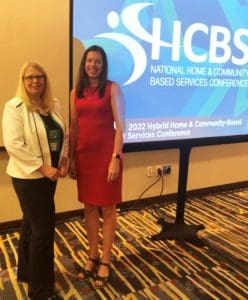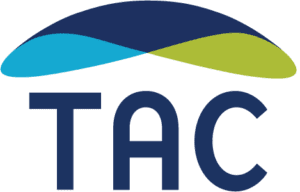Bringing a Public Health Perspective to Medicaid-Funded Behavioral Health Crisis Response for Children and Families
Almost every community’s behavioral health crisis response system is structured to deal with just that: crises. Many systems are unable to meet the full range of needs experienced by people not only during, but before and after a behavioral health emergency. Each system’s ability to meet demand is further constrained by its own capacity limitations. From a public health perspective, efforts to improve access to upstream, preventive behavioral health services should result in fewer crises for the system to respond to, and lead to better outcomes for service recipients as well. This is particularly true in addressing the needs of children and youth, since early and effective intervention can make a positive difference for both a young individual and their family for many years to come.
To help bring about this shift, the Commonwealth Fund has engaged TAC Senior Consultant Laura Conrad to create a series of blog posts, to be released throughout the fall, on incorporating Medicaid and best practices to prevent and resolve behavioral health crises for children and adolescents. Featured on Commonwealth’s To the Point blog, these quick overviews are intended to help those who design, finance, and implement behavioral health services — as well folks who work in other child-serving systems — and will cover topics like school-based Medicaid authorities; creative workforce initiatives; supporting youth with autism spectrum disorders; financing options for home and community-based services; and child/family-focused Certified Community Behavioral Health Clinics.
In the first post, “Medicaid’s Essential Role in Improving the Mental Health of America’s Most Vulnerable Youth,” Laura urges states to improve access to preventive behavioral health services through Medicaid, and describes how this shift can yield significant savings and provide other benefits as young people become adults.
Money Follows the Person — Successfully Supporting Transitions to the Community

Lori Gerhard, Director of the Office of Interagency Innovation at the U.S. Administration for Community Living and Nicole LiBaire, TAC Senior Associate
Through TAC’s contract with USAging, Senior Associate Nicole LiBaire presented on “Federal, State, & Local Housing-Related Resources to Support Effective Transitions” at the preconference Money Follows the Person session of the Home & Community-Based Services (HCBS) conference in August.
The Money Follows the Person (MFP) program provides enhanced federal funding to help people move from nursing homes and other institutions, into homes in the community. The Administration for Community Living reports that the program has helped facilitate more than 107,000 transitions out of institutional settings since 2008. Thanks in part to programs like MFP, more than 85 percent of people who used Medicaid long-term services and supports in 2019 received Home and Community Based Services rather than institutional services. With recent awards from the Centers for Medicare and Medicaid Services, 41 states and territories now participate in MFP.
Nicole spoke to attendees about what it takes to support effective transitions, including comprehensive housing-related services and partnerships between service providers and housing agencies. She also provided information about the U.S. Department of Housing and Urban Development’s (HUD) Mainstream Voucher and Section 811 Project Rental Assistance programs, and shared tips on sources of funding for landlord incentives.
Staff in Action
Senior Consultant Rebecca Boss joined a panel on “Radical Collaboration: Breaking Down Barriers, Driving Towards Equity” at the Alliance for Health Policy conference in Washington, D.C.; Associate II Eric Gammons and Senior Associate Nicole LiBaire represented TAC at the HUD Disaster Technical Assistance Team’s recent strategy meeting to review the 2022-2023 seasonal disaster outlook, define “triggers for engagement,” and scale up trauma-informed, equity-centered responses in communities dealing with a catastrophic disaster; Kevin Martone spoke on “Best Practices to Help Reduce the Risk of Crisis: Supportive Housing, Case Management, & Supported Employment” at the annual conference of the National Association of State Mental Health Policy Directors (NASMHPD); at the National Academy for State Health Policy conference in Seattle, Kevin joined a panel on “The Last Frontier: Building Rural Crisis Systems” and, at the conference’s invitational Health & Housing Institute meeting, addressed state participants on Medicaid and other resources for tenancy and housing supports in permanent supportive housing; With funding from the California Interagency Council on Homelessness, Associate Téo Ortega & TAC subcontractor Lauren Leonardis designed and implemented the YAB Collab, a model of work to support a team of youth subject matter experts (Phoebe Ricker, André Thomas, Liam Spady, & Dash Togi) in developing a webinar series to assist California’s Homeless Housing, Assistance, & Prevention grantees as they create and sustain Youth Action Boards; Téo also joined New York Youth Homelessness Demonstration Project partners in a press event for the launch of the Mayor’s Plan to Prevent & End Youth Homelessness; and at the National Alliance to End Homelessness conference, Director of Diversity, Equity, & Inclusion LaMont Green joined a panel on “Reimagining a Racially Equitable & Just Coordinated Entry System,” and Director Lisa Sloane participated in a panel on “Using Housing Choice Vouchers to Solve the Hardest Homelessness Problems.”
Staff Transitions
TAC is happy to welcome three new team members! Erin McKeon, M.S., is now our Federal Contracts Assistant, helping Senior Federal Contracts Manager Kim Wilder to keep our growing portfolio of projects running smoothly; Lamar Polk, M.P.H., L.I.C.S.W., our newest Senior Associate, brings expertise in behavioral health, public health, and health care systems improvement through a racial equity lens; and Lena Brown, an M.S.W. candidate at the Boston College School of Social Work, is doing great work as an intern on a variety of TAC projects.


